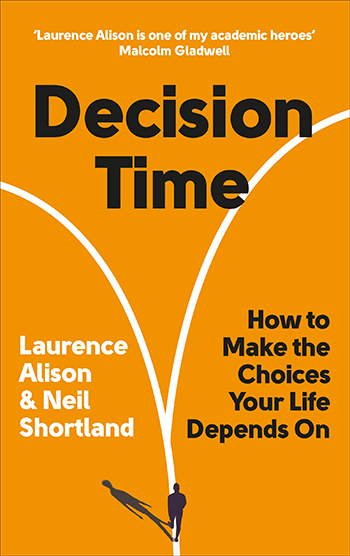There are little decisions to make in life like what to wear to work and what to eat for lunch. Then there are potentially life-changing decisions like whether to move, take a new job, break up with someone, or get married. With these big decisions, you may never have faced that choice before, have to sacrifice one path to choose another, and have a hard time figuring out the right way to go. As a result of the high stakes and high uncertainty, we often flounder in this kind of decision-making, sometimes failing to make any decision at all.
There are little decisions to make in life like what to wear to work and what to eat for lunch. Then there are potentially life-changing decisions like whether to move, take a new job, break up with someone, or get married. With these big decisions, you may never have faced that choice before, have to sacrifice one path to choose another, and have a hard time figuring out the right way to go. As a result of the high stakes and high uncertainty, we often flounder in this kind of decision-making, sometimes failing to make any decision at all.
My guests have studied those who have to make these kinds of critical choices more often — first responders and members of the military — to figure out how civilians can make better decisions in their everyday lives. Their names are Laurence Alison and Neil Shortland, and they’re the authors of Decision Time: How to Make the Choices Your Life Depends On. Today on the show, Laurence and Neil explain the mistakes people commonly fall into when making big decisions, including getting stuck in a cycle of redundant deliberation, where you forever circle around your options without ever pulling the trigger on one. They then unpack their model for more effective decision-making, including why it should follow a foxtrot pattern, and how to know when it’s time to stop ruminating and finally make a choice. Along the way, we discuss the importance of self-awareness in this process, and what it is you need to know about yourself to make better decisions.
